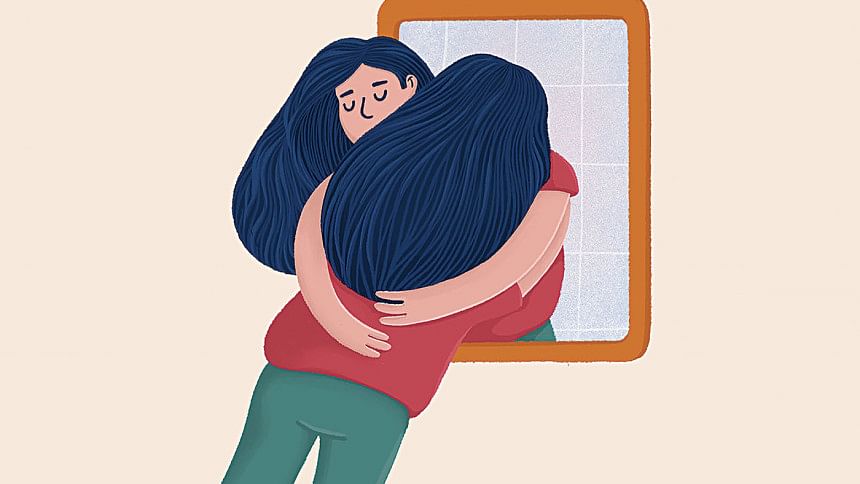Our insecurities, when handed down to others

People who are overly critical of others are usually ruthless to themselves. This practice is quite common in our house. We stand in front of the mirror to tear ourselves apart verbally. When we accomplish something, instead of appreciating it, we try to find out how much better we could have done.
I have heard my family members pointing to their flaws often in the past. It never struck me as anything out of the ordinary until I heard my little sister speaking unkindly about herself. I kept recalling that; I, too, speak a lot about that particular imperfection. I had never realised that I was unintentionally teaching her to see herself through my self-conscious lens.
It is normal, and truthfully, unavoidable, to sometimes feel insecure.
However, when you are verbal about your insecurities in front of children, they tend to pick it up as well. We all know that they learn by example. Imagine pointing out particular features you are unhappy about, such as your height or thinning hair, in front of a child. Even though it is about your own body, it might make them aware that these things can be the subject of insecurities. So, they start to notice if the same things apply to them.
Pulling a stop to talking about your insecurities is hard, especially if it is an old habit. Not speaking about them does not essentially make them disappear. The best solution would be to learn to think about these insecurities healthily.
As a curvy person, I grew up being told that I should lose weight to wear certain clothes. My friend grew up hearing that she should put on some weight so that she can find clothes more easily. This concept in itself is wrong because none of us had much control over the shape of our bodies. Instead of thinking that we need to change ourselves to fit into a dress, we should have been taught that dresses should be made to fit us.
The uniqueness of our beings is one of the most beautiful things about us. So, as hard as it is to believe it sometimes, we should gradually try to accept the things that we have been hard-wired into believing are flaws. Self-affirmation meditation can be a helpful tool in this case.
The same idea applies to your accomplishments. When you catch yourself trivialising your achievements, think about how you would feel if your friends or siblings achieved the same thing. You would probably be happy for them. Learning to give yourself credit teaches you to be less critical of others, and this inspires children to be more empathetic.
We should be softer to ourselves and others for the ones you're an example to, but most importantly, for ourselves. We deserve kindness, today and every day.
Shimin reads everything she can find, talks to cats, and writes a lot of letters. Send her a book at [email protected]

 For all latest news, follow The Daily Star's Google News channel.
For all latest news, follow The Daily Star's Google News channel. 



Comments